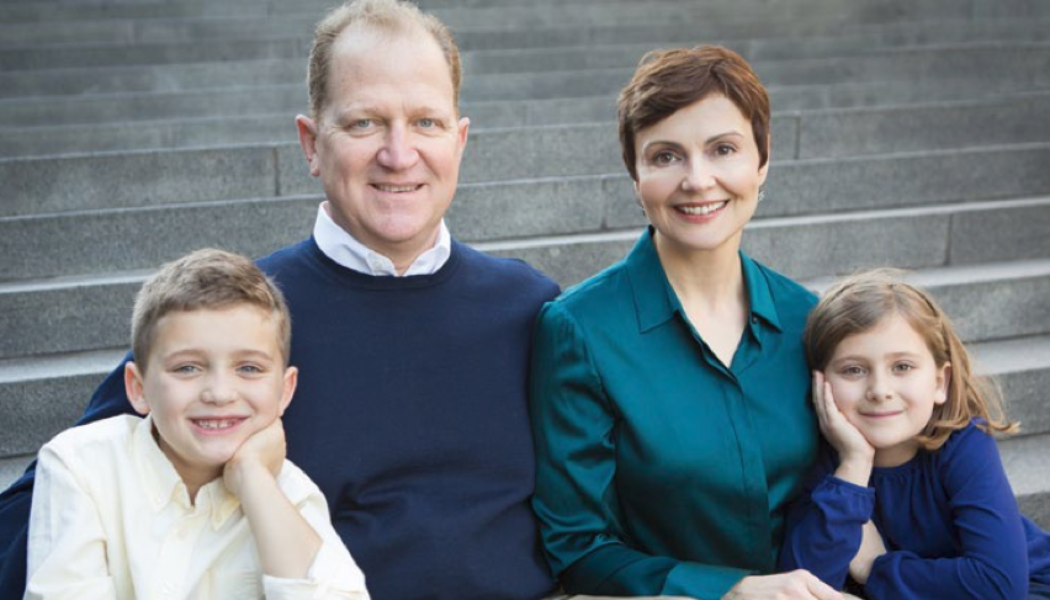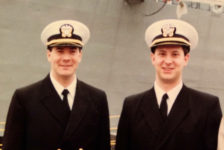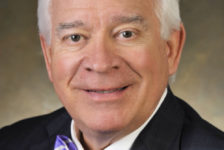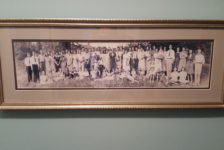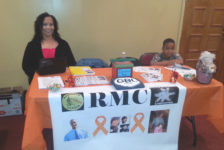Bryan Lewis was diagnosed with kidney cancer when he was just 46 years old. At the time he was the new father of one-year old twins and had recently been promoted at a leading national trade association. He is married to a wonderful and smart woman, and lives in Philadelphia, Pennsylvania. Today, he is the voice of kidney cancer on Capitol Hill leading the Kidney Cancer Action Network. He also serves as a member of the KCCure Patient Advisory Board. This is his story.
My story begins in July 2007. I noticed some blood in my urine while at work. I thought it might have been from some juice I drank at a meeting earlier in the day. But the cranberry color continued throughout the day. When it was still there in the evening, I decided to go to the local emergency room. After a two hour wait, the doctor returned and said they thought it might be kidney stones. To be safe, he recommended a CT scan. Two hours later, I was shocked to hear the doctor say that it wasn’t kidney stones, but likely kidney cancer. They told me to come back to meet with a urologist the next day.
When trying to recreate the moments and minutes after hearing that statement, I have to be honest – sometimes I can remember it like it just happened and other times it seems like a blur. I just remember thinking, “Cancer. I’m sorry did you just say CANCER?” It all seemed so surreal. There was no history of cancer in my family. My grandfather lived to be almost 101. Both of my parents are active and in their late 80s.
Upon returning to the urology department the next day, after a sleepless night, the doctor matter-of-factly informed me that I needed surgery immediately and that I was already on the schedule for a radical nephrectomy in the next few days. We didn’t stop to think or ask questions, we just did as we were told. The surgery was deemed a success and I was sent home from the hospital.
But during my follow up visit, I was referred to an oncologist. What I found out was that during surgery, metastatic disease was observed in the surrounding lymph nodes and going up towards my chest and thoracic area. Their recommendation was to begin targeted therapy with a tyrosine kinase inhibitor (TKI). But they also suggested that I get a second opinion.
I launched an extensive search on the internet, which was really frightening for me. My wife and I decided to seek out second opinions with kidney cancer oncologists in Philadelphia and New York. They all recommended the same systemic therapy using a TKI. Interestingly enough, it was my pathology report that changed the course of what we decided to do. The histology of my tumor was interesting; it appeared to have both clear cell and papillary characteristics. The National Institutes of Health (NIH) found that histology interesting and they agreed to take a look at my cell slides and have me come in for further analysis. Most of the NIH oncologists came down on the side of the other specialists and recommended targeted therapy, but one doctor on the team was a surgeon and he made a strong case for a metastectomy (surgery to remove the metastatic disease). By using surgery first, we could achieve no evidence of disease (NED) without using any systemic therapy and even perhaps remain free of disease. My wife and I decided to get it a shot. We figured we could always go back and use systemic therapy if we needed to.
It wasn’t an easy operation. I spent 13 hours on the operating table and a week in intensive care, as well as several weeks in recovery. Three months later though, my follow up scans showed that I was still NED. I’m happy to tell you that eight years later, I’m still free of disease
Early in the journey, one doctor gave me some poignant advice: “……remember this; we are in the practice of medicine. We do not know everything.” Today, I tell everyone, take charge of your own situation. Take copious notes of every meeting and appointment. Ask questions. Get answers. Seek out multiple opinions. Find kidney cancer specialists. There are dozens of types of cancers. Changes and breakthroughs are happening daily in oncology. Many doctors, even the best, cannot read up on everything going on in the cancer universe. Search. Study. Ask. Join a patient group on Facebook. Join Smart Patients. Talk to your doctors and nurses. Get involved. Get information. Only you can take charge of your situation.
A couple of years ago, a good friend said: “After all you have been through, you need to give back and help others.” That was the spark to support my advocacy efforts. I founded the Kidney Cancer Action Network, an organization dedicated to increasing the voice of kidney cancer in Washington D.C. and across the United States. Through political advocacy efforts, we foster and fund healthy living efforts, early detection, research funding for breakthroughs, and quality of life improvements for the kidney cancer community. Through our efforts, last year the Kidney Cancer Research Program at CDMRP was finally passed into law. This new federal program will fund $10 million in new research just for kidney cancer. While we’re incredibly proud of this accomplishment – we’re not done. You can read more about our goal of doubling that funding here.
Through all of this, I thank God and all the family and friends who have prayed for me and supported me through this journey. I couldn’t have done it without you.

